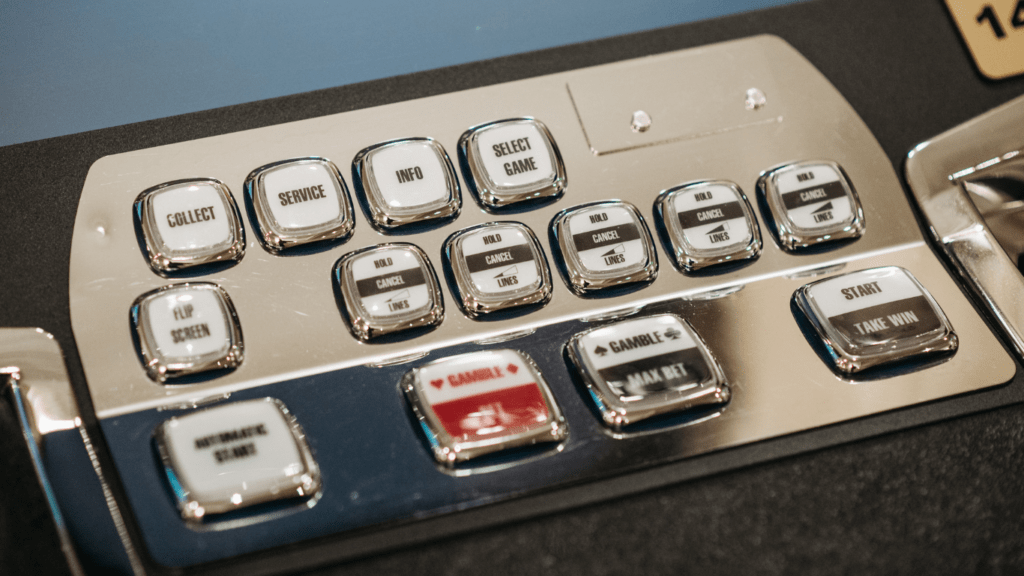What Is Volatility in Slot Games?
Volatility, also known as variance, in slot games reflects the frequency and size of payouts. It’s a critical factor in identifying the risk level of a slot machine. High volatility slots, for example, might have extended periods without wins, but they offer larger payouts when wins occur. These slots cater to players seeking big jackpots and are willing to risk more for substantial rewards.
In contrast, low volatility slots provide smaller, more consistent payouts, ideal for players who prefer regular wins, albeit modest ones. These slots reduce financial risk, making them suitable for those playing with a limited budget.
Volatility relates directly to the excitement and strategy of gaming choices, allowing players to select slots aligning with their risk tolerance and win expectations. Understanding volatility empowers players to tailor their gaming experiences to match personal preferences, maximizing both enjoyment and potential winnings.
Types of Slot Volatility
Slot volatility directly affects the gaming experience by influencing payout frequency and size. Different volatility types help players align their risk and reward preferences.
Low Volatility Slots
Low volatility slots offer frequent but smaller wins. They’re ideal for players who prefer consistent payouts, often found in games with simple bonus features and low jackpots. Games like “Starburst” or “Blood Suckers” exemplify low volatility. Players with limited budgets, desiring regular engagement without significant risk, gravitate towards these slots.
Medium Volatility Slots
Medium volatility slots balance risk and reward, providing a mix of moderate wins and occasional larger payouts. These slots appeal to players seeking a varied experience, with game elements featuring diverse bonus rounds and average jackpot sizes. Popular games like “Gonzo’s Quest” offer this blend, catering to a broader audience who appreciate both entertainment and potential gains.
High Volatility Slots
High volatility slots promise substantial jackpots but compensate with infrequent wins. They’re suited for risk-takers aiming for big rewards, willing to endure dry spells for the chance of significant payouts. Games such as “Dead or Alive 2” or “Book of Ra” showcase this type, attracting players looking to maximize their potential winnings through higher stakes.
How to Choose the Right Slot Volatility

Choosing the right slot volatility enhances your gaming experience by aligning with your risk appetite and financial goals.
Assessing Your Risk Tolerance
- I evaluate risk tolerance first by examining my comfort level with potential losses.
- Those comfortable with occasional losses might find high volatility slots appealing due to the promise of big payouts.
- In contrast, if frequent small wins suit my style more, then low volatility slots are a better choice.
Setting Your Budget and Goals
- I identify my budget and objectives to guide my slot selection.
- With a limited budget, I might opt for low volatility slots to extend gameplay with more consistent wins.
- For big payouts, I adjust my strategy toward high volatility slots, understanding these require patience and possibly larger bankrolls.
- This alignment ensures I maintain a balanced approach to my gaming experience.
Strategies for Big Wins
In the quest for significant rewards, understanding and leveraging slot volatility is crucial. By employing specific strategies, I can enhance my chances of success based on chosen volatility levels.
Maximizing High Volatility Slots
To make the most of high volatility slots, I prepare by setting a robust bankroll. Since these games involve long gaps between big payouts, a substantial budget allows me to endure inevitable dry spells. Betting at higher stakes can increase potential returns when a win occurs, but this also requires caution to avoid rapid bankroll depletion. I closely monitor my play and adjust my bets according to the bankroll size.
Selecting high RTP (Return to Player) games is another critical tactic. I choose slots with a high percentage of payouts over time to tilt the odds more in my favor. For example, high volatility slots like “Dead or Alive 2” often come with better RTP rates, offering a balance of risk and reward. Understanding any special features in these games—such as multipliers and free spins—increases my chances of unlocking bigger wins.
Consistent Wins with Low Volatility
For low volatility slots, I adopt a strategy focused on sustainability and longevity. By placing smaller, consistent bets, I prolong my gaming sessions without significant budget impact. I select slots with bonuses and frequent payouts, ensuring a steady flow of smaller wins to keep me engaged.
Games such as “Starburst” provide ample opportunities for regular payouts, and I often look for slots with features that enhance potential returns, like expanding wilds and re-spin options. Keeping a set limit on losses helps maintain discipline, preventing overspending in pursuit of consistent wins. By diversifying my slot choices while sticking to low volatility options, I enjoy steady gaming with manageable risks, optimizing the balance between enjoyment and budget management.
Advantages and Disadvantages of Different Volatility Levels
Understanding the pros and cons of slot volatility helps tailor gaming experiences to individual preferences and risk tolerance.
Low Volatility Slots:
- Advantages
Frequent payouts make low volatility slots appealing to budget-conscious players. Constant returns enhance enjoyment and extend playtime, allowing for strategic planning with limited funds. Popular choices like “Starburst” provide consistent rewards. - Disadvantages
While regular wins occur, they tend to be small. Players seeking substantial rewards may find low volatility slots unappealing due to limited jackpot opportunities.
Medium Volatility Slots:
- Advantages
Medium volatility slots offer a balance between payout frequency and size, making them suitable for players desiring moderate risk and reward. Games like “Gonzo’s Quest” deliver varied experiences with occasional larger payouts. - Disadvantages
Inconsistent win rates may frustrate players expecting consistent rewards. Managing bankroll effectively is crucial to navigating the balance between highs and lows.
High Volatility Slots:
- Advantages
Big jackpots and potential for significant rewards attract risk-takers to high volatility slots. Titles like “Dead or Alive 2” promise lucrative returns for those willing to endure dry spells. - Disadvantages
Infrequent wins demand patience and often a substantial bankroll. Players risk rapid cash depletion, requiring careful strategy and robust financial planning to mitigate losses.

 Tayla Christmas brought her creativity and analytical skills to Wild Gamble Greed, helping design the platform’s interactive features and user-friendly interface. Her attention to detail and commitment to delivering a seamless experience for high-rollers ensured the platform became a trusted resource for gamblers seeking strategic and responsible guidance. Tayla’s efforts have been instrumental in building the foundation for Wild Gamble Greed’s success.
Tayla Christmas brought her creativity and analytical skills to Wild Gamble Greed, helping design the platform’s interactive features and user-friendly interface. Her attention to detail and commitment to delivering a seamless experience for high-rollers ensured the platform became a trusted resource for gamblers seeking strategic and responsible guidance. Tayla’s efforts have been instrumental in building the foundation for Wild Gamble Greed’s success.